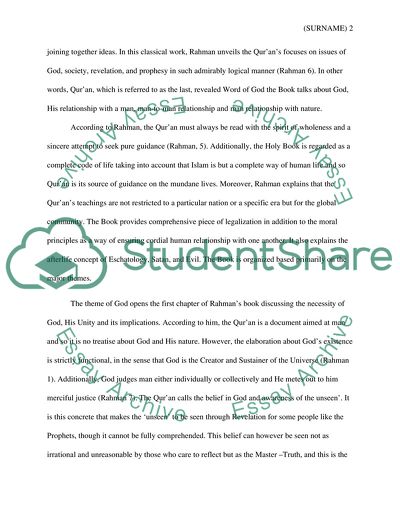Cite this document
(“What is the Quran about according to Fazlur Rahmans book Major Themes Essay”, n.d.)
What is the Quran about according to Fazlur Rahmans book Major Themes Essay. Retrieved from https://studentshare.org/religion-and-theology/1668182-what-is-the-quran-about-according-to-fazlur-rahmans-book-major-themes-of-the-quran
What is the Quran about according to Fazlur Rahmans book Major Themes Essay. Retrieved from https://studentshare.org/religion-and-theology/1668182-what-is-the-quran-about-according-to-fazlur-rahmans-book-major-themes-of-the-quran
(What Is the Quran about According to Fazlur Rahmans Book Major Themes Essay)
What Is the Quran about According to Fazlur Rahmans Book Major Themes Essay. https://studentshare.org/religion-and-theology/1668182-what-is-the-quran-about-according-to-fazlur-rahmans-book-major-themes-of-the-quran.
What Is the Quran about According to Fazlur Rahmans Book Major Themes Essay. https://studentshare.org/religion-and-theology/1668182-what-is-the-quran-about-according-to-fazlur-rahmans-book-major-themes-of-the-quran.
“What Is the Quran about According to Fazlur Rahmans Book Major Themes Essay”, n.d. https://studentshare.org/religion-and-theology/1668182-what-is-the-quran-about-according-to-fazlur-rahmans-book-major-themes-of-the-quran.


